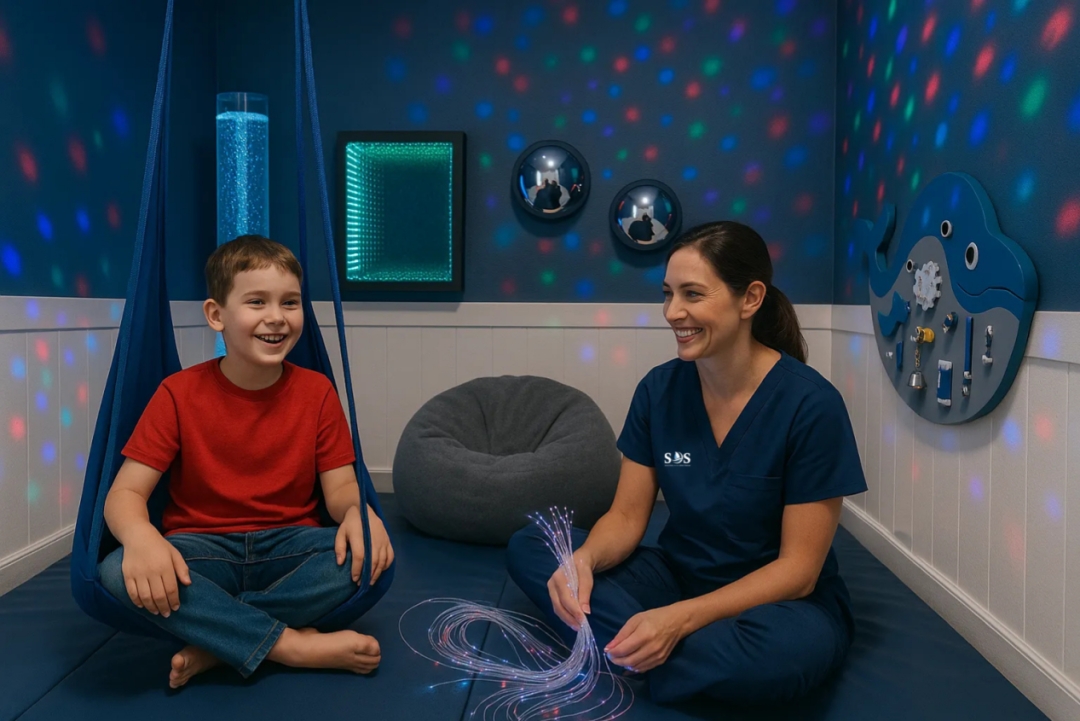Houston, Texas - For decades, aspiring entrepreneurs in childcare turned to daycare franchises as a tried-and-true business path. Today, however, a new opportunity is emerging: autism therapy centers, particularly those offering Applied Behavior Analysis (ABA). With rising demand, insurance-backed funding, and growing franchise options, many are asking whether an ABA clinic could be a better investment than a daycare franchise.

The Familiar Path: Daycare Franchises
Daycare franchises remain a stable option. They provide early learning and supervision to children across a wide age range and operate within well-known business models. Parents pay tuition, sometimes supported by childcare subsidies, and operators focus on safety, play, and education.
Pros of daycare franchises:
- Established industry with strong brand recognition.
- Broad customer base serving working families.
- Predictable demand tied to workforce participation.
Challenges:
- Highly competitive market with many established players.
- Costs are borne largely by parents, leaving the business more vulnerable during economic downturns.
- Large child-to-staff ratios can raise liability and compliance risks.
The New Frontier: ABA Clinics
ABA clinics, by contrast, provide clinical services to children with autism. While newer to the franchise world, the sector is expanding rapidly as prevalence rises—currently affecting about 1 in 31 children in the U.S. according to the CDC.
Key advantages of ABA clinics over daycare franchises:
- Insurance-backed revenue: Every U.S. state now mandates insurance coverage for autism treatment, making the sector more recession-resistant than tuition-based daycare.
- Strong demand growth: Rising autism prevalence, along with better screening and awareness, ensures expanding need for ABA therapy.
- Lower liability exposure: ABA clinics typically serve fewer children per center compared with daycares, reducing crowding and associated risks.
- Higher payout per client: Insurance reimbursement rates for clinical services often surpass tuition revenue in traditional childcare.
- Lower facility regulations: Unlike daycares, which must comply with strict childcare capacity rules, ABA clinics face fewer licensing burdens, though staffing requires highly trained clinicians.
The complexity lies in workforce requirements. ABA centers depend on Board Certified Behavior Analysts (BCBAs) and trained technicians, making recruiting and retention central to success.
The Franchise Model in Autism Care
Franchising has helped standardize ABA services, making entry more accessible for non-clinical entrepreneurs. Success On The Spectrum (SOS) was the first ABA franchise in the United States and remains the largest. As of 2025, it reports 75 open clinics nationwide with no financial closures, highlighting both demand stability and the resilience of the model.
A Social and Financial Impact
For entrepreneurs, the decision is about more than money. ABA clinics allow business owners to contribute directly to life-changing outcomes for children and families. Parents often describe ABA therapy as helping their children speak their first words, learn daily skills, and make friends—milestones that extend beyond financial return.
The Bottom Line
Opening a daycare franchise still offers a familiar, stable business model. But for many entrepreneurs seeking both financial resilience and social impact, an ABA clinic may represent a better investment than a daycare franchise. Insurance-backed revenue, lower liability, and strong demand growth have positioned autism treatment as a new frontier for small-business owners.
With pioneers like Success On The Spectrum proving that franchise models can work in healthcare, opening an ABA clinic is now a realistic path for entrepreneurs who want to make a difference while building a sustainable business.
Media Contact
Company Name: Success On The Spectrum
Contact Person: Shovon Ahmed
Email: Send Email
Country: United States
Website: https://successonthespectrum.com/





